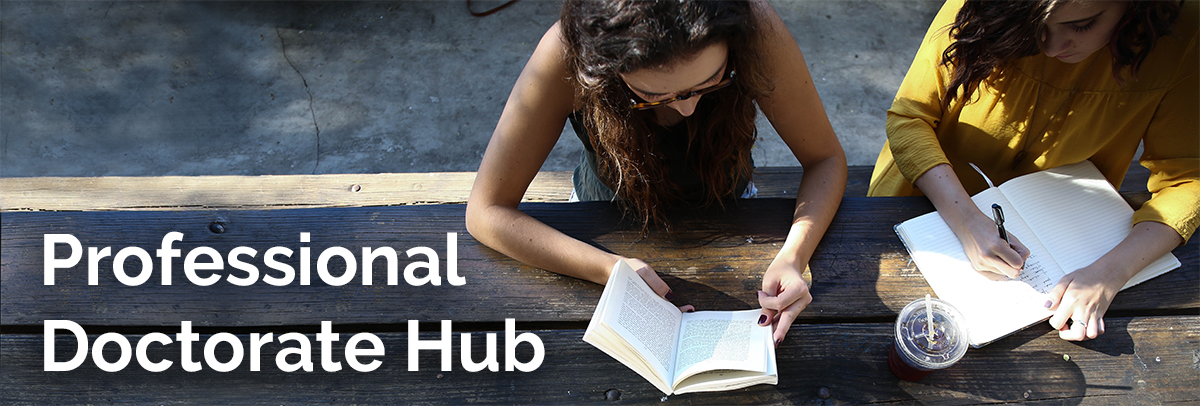The comments from other EdD students might give you insight into how they approached these areas. As you read the sections make a note of any actions and add them to your Researching Professional Development Plan. You can then discuss your action plan with your supervisor and revisit it at the end of the EdD year.
Motivation and passion
What others said:
Choose a subject that is quite close to your heart.
Read through your [early] work especially as you are putting your thesis together … so that you can remember your earlier enthusiasm and ideas. It can be very easy to lose the motivation and impetus [when] you are doing continuous rewrites or working on new chapters.
Finding a topic that you are passionate about I think is intensely important but also being open to disproving your ideas. … You have to be ready to explore and to reformulate your ideas.
Points for you to consider:
- What could you do to maintain your early enthusiasm?
- How much have you shared your motivation and passion?
The importance of studying in a way that suits you
What others said:
One of my goals, and also I think the goal of the EdD, was to make what I was doing 100% applicable to both parts of my life so 100% to my work and 100% to the study … a data set came along in year 2, which was incredibly relevant for my whole university … so I decided to switch topics just because I could make that synergy even higher.
[Try] to work out early on in the programme if you are a pen-and-paper person or a digital person and then stick to that. If you feel more comfortable learning more using pen and paper, then don’t worry about most people using fancy software.
I was between two things: I was trying to assemble information in a way, or log it in a way that was amenable to retrieve for my EdD over a long period, but equally well I also knew that there are ways in which I like to write. I knew that I only had one lot of time. … I think if I was going to do it again I would probably resurrect my voice recognition software which I used to use when I was doing another job so at least I could talk it.
Points for you to consider:
- Is there more you could do to increase the links between your research and practice?
- How much does how you study play to your strengths?
The need to be open and flexible
What others said:
What I found interesting is that I started off thinking ‘I know what I want to research’ and then the more I went into it ... the less I realised I knew and it has made me reluctant to say what the outcome of the research is going to be until I have got there.
The thing that was a puzzle to me was this notion about the research question, ‘How long does a research question stay a research question? Can a research question change? Can the entire enquiry change?’ I thought that you had to stick with the plans and directions set out in the original proposal. … Towards the end [I] realise I had far more flexibility than I thought I had. This is where talking to others early would have helped … if you are talking about it more, then you come to a point earlier of ‘I don’t think that is quite it’ or ‘maybe we need to look at that?’
The thesis is not set in stone and … your ideas may change as you carry out your research, particularly if your research is based in practice.
Points for you to consider:
- How comfortable are you when your research changes shape?
- How willing are you to challenge your thinking as you go along?
Getting through times of struggle
What others said:
Doing the thesis along with real life doesn’t exactly give you loads of time. … It is like a weight, it is always that bit of guilt that you are walking around with and I am looking forward to not having guilt for a while.
In the supervisor’s report, he would say things like ‘needs to improve her academic style’ (which was absolutely true!) but it made me feel inadequate. … I spoke to my supervisor about this at one point and said that I didn’t think I was good enough to carry on and he explained that preparing a thesis is a work in progress and it was perfectly OK to keep editing and improve the work. I had felt embarrassed because I felt I was sub-standard but he made me feel much better.
When I was studying there was definitely a bit of time when I thought ‘actually I think I would rather go to a pub and not read this. My life is really full, I have got children and maybe I should not bother and go and do something else’ and I kind of decided ‘no I wouldn’t, I will finish it and I will do it as well as I possibly can’.
I think at one point I really needed some support because emotionally I was so down.
Points for you to consider:
- How well are you coping with the ups and downs of studying for an EdD?
- Have you worked out ways of reducing any feelings of guilt you might have?
- Do you feel you need emotional support?
Please note – if at any time you feel you are experiencing mental health issues or need emotional support:
- Disabled students services can offer advice on mental health issues: Disability Support for OU Study.
- There is also a booklet on studying and staying mentally healthy.
- If you feel you would benefit from counselling, The Open University recommends that you see your own doctor.
This section has been about ‘building your resilience’. Before moving on, have a final look at the actions you have added to your Researching Professional Development Plan as a result of working through this section. Will your planned actions help you move forward over the coming year? Will they help you develop the ways you think? Are there any other actions that you feel might help you? Return to the Researching Professional Development Framework.

This piece of content is part of the 'Professional Doctorate Hub', a collection of academic-led info, from articles and infographics to animations. Click on the banner above or CLICK HERE to view all materials.





Rate and Review
Rate this article
Review this article
Log into OpenLearn to leave reviews and join in the conversation.
Article reviews